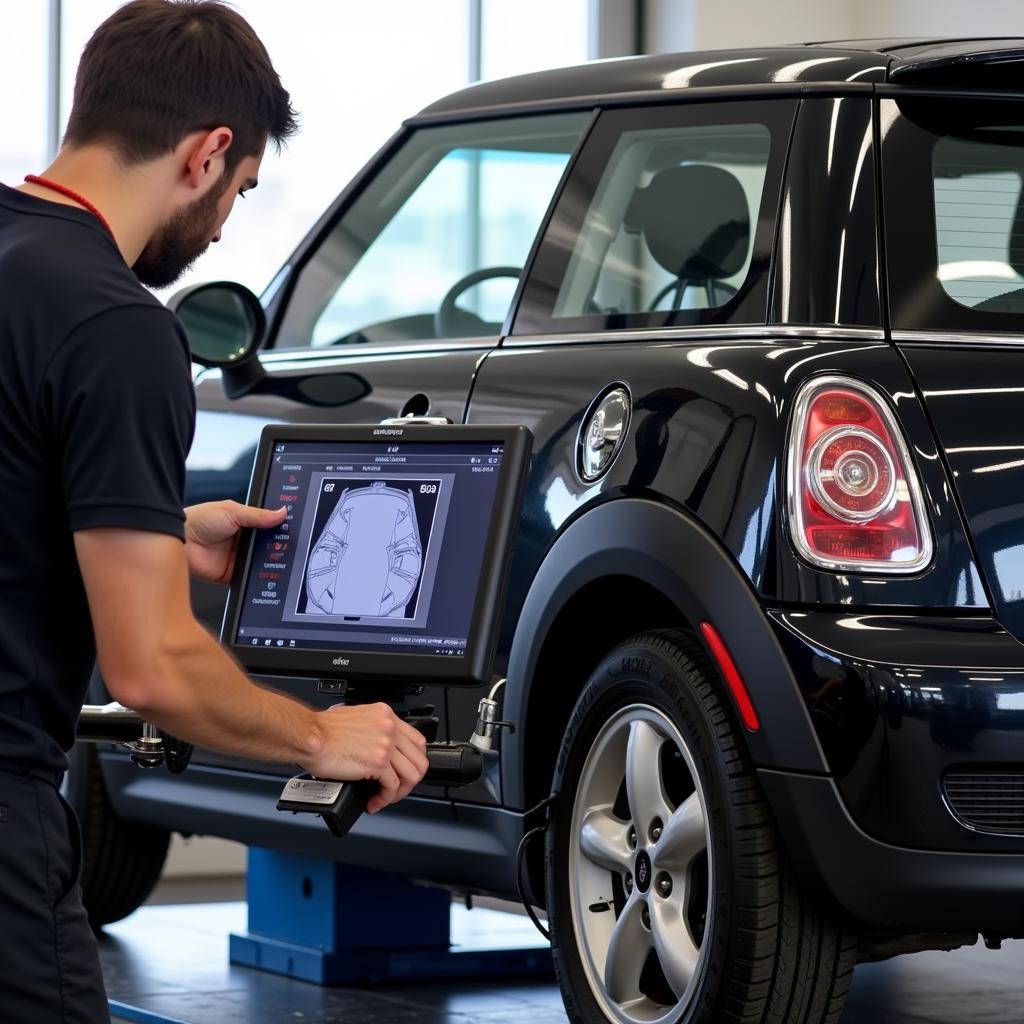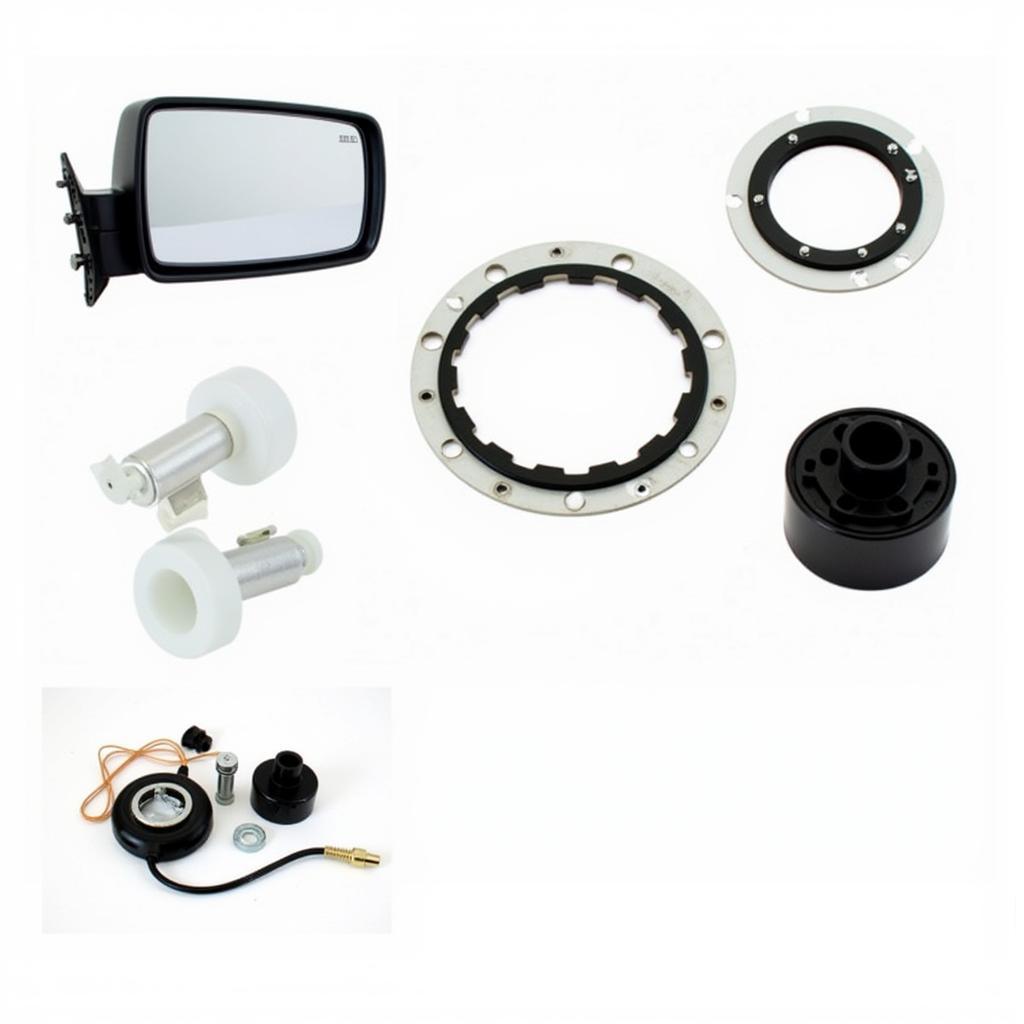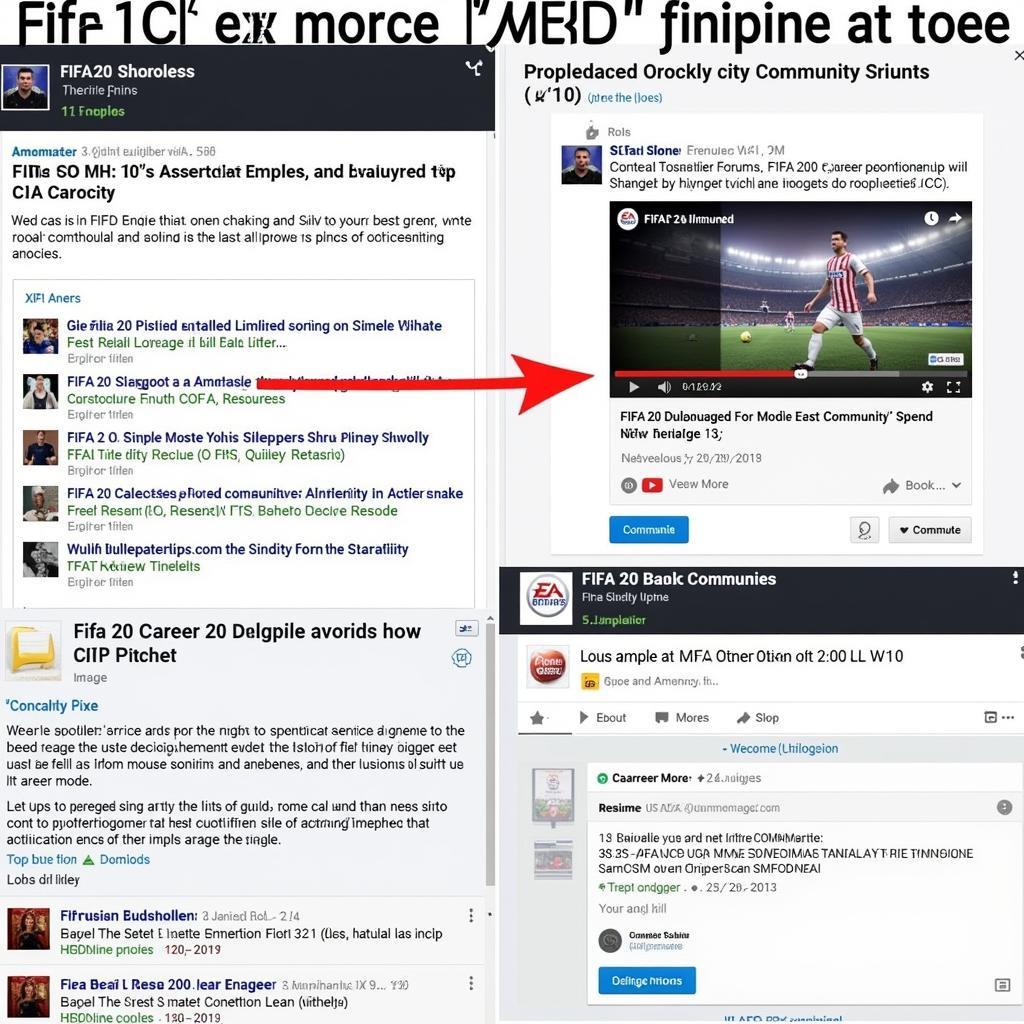Making the difficult decision between repairing or totaling your car after an accident or significant damage can be a real headache. Is It Better To Total A Car Or Fix It? There’s no easy answer, as the best course of action depends on a variety of factors specific to your situation. This article will guide you through the decision-making process, equipping you with the knowledge you need to make the right choice.
One of the primary factors influencing this decision is the extent of the damage. A minor fender bender is a completely different scenario than a car that’s been submerged in floodwater. Obviously, the more extensive the damage, the higher the repair costs. But it’s not just the visible damage you need to consider; hidden damage can significantly inflate repair bills.
Considering the Repair Costs
Before you even think about totaling the car, obtain a comprehensive repair estimate from a reputable mechanic. Don’t just go with the first estimate you receive. Get a second, and even a third opinion. This will give you a clearer picture of the potential costs and help you avoid being overcharged. If you’re dealing with an insurance claim, your insurer will likely have their own assessment done. Compare this assessment with your independent estimates.
Sometimes, even seemingly minor damage can result in surprisingly high repair costs, especially if specialized parts are needed. For instance, if your car’s heating system is damaged, you may want to know the average cost to fix heat in car. Likewise, understanding the cost of fixing car heater can be crucial in your overall decision-making process.
The 70% Rule: Is It Better to Total a Car or Fix It?
Many insurance companies use what’s known as the “70% rule.” If the estimated cost of repairs exceeds 70% of the car’s actual cash value (ACV), the insurer will likely declare it a total loss. The ACV is the current market value of your car, taking into account its age, mileage, and condition before the damage occurred.
Understanding Actual Cash Value
The ACV is a crucial piece of the puzzle. It’s not the same as what you paid for the car or what you still owe on your auto loan. It’s the price you could realistically expect to receive if you sold the car before the incident. You can get a rough estimate of your car’s ACV using online valuation tools or by consulting with a used car dealer.
Even if the repair costs are less than 70% of the ACV, it still might be wise to consider totaling the car, especially if it’s an older vehicle with pre-existing problems. “Sometimes, repairing an older car can open a Pandora’s box of further issues,” says automotive expert, David Miller, ASE Certified Master Technician. “What starts as a relatively minor repair can quickly snowball into a money pit.”
Repairing an older car with pre-existing mechanical issues might lead you to question how much cost to fix car heater or how much does it cost to fix my car heater if the heating system also requires attention. These added costs can significantly influence your decision.
What if the Car Is Not Insured?
If your car is not insured, the decision rests entirely on your shoulders. Weigh the repair costs against the cost of buying a comparable used vehicle. Factor in the sentimental value you may have for your car, but don’t let emotions cloud your judgment. “A practical approach is often the best approach,” advises Sarah Chen, an experienced automotive appraiser. “Consider the long-term costs and potential future reliability of your vehicle.” average cost to fix overheating car might be a consideration, depending on the initial damage.
Conclusion: Making the Right Choice
Deciding whether to total a car or fix it is a significant decision. Carefully evaluate the repair costs, the actual cash value of your car, and the potential for future problems. Don’t rush the process. Gather all the necessary information, weigh your options, and make an informed decision that aligns with your budget and needs. Need further assistance? Connect with AutoTipPro at +1 (641) 206-8880 or visit our office at 500 N St Mary’s St, San Antonio, TX 78205, United States. We are here to help.







Leave a Reply